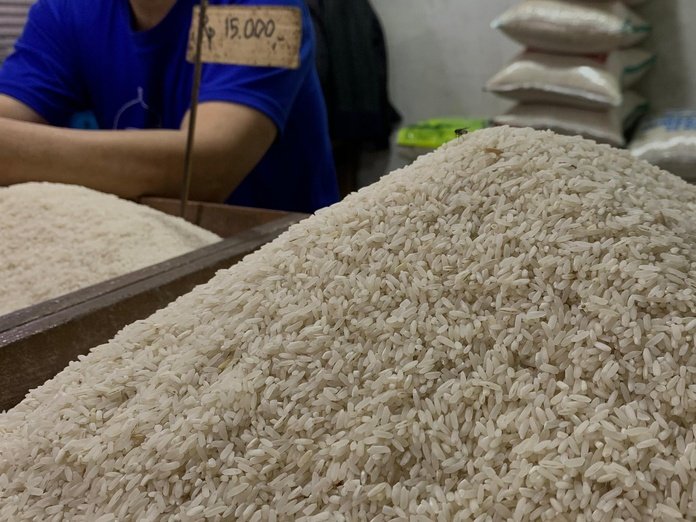The Agriculture Office and the Bandung City Government predict that food prices will rise. For rice, both medium and premium quality, prices are expected to increase, though still within tolerable limits.
The Head of the Agriculture Office explained that, in general, the trend for both medium and premium rice is a slight increase.
“Medium rice has increased by about 0.02 percent, while premium rice has seen a higher increase of around 0.4 percent. Premium rice prices are currently high, which is why they are expensive. There are even issues regarding packaging changes and other factors,” he said after the Food Assistance Program Distribution event in Cihapit Subdistrict, Sabang Street, Bandung City.
Furthermore, he stated that the highest retail price (HET) for medium rice is Rp12,500, while for premium rice, it is Rp14,900. Currently, medium rice is priced at Rp12,900, and premium rice is above Rp14,900.
He added that to counter the price increase caused by high consumer demand, the government, through Bulog, has begun distributing SPHP rice (Food Supply and Price Stabilization) to traditional markets and food stalls under Bulog’s supervision.
“Now we can access Bulog rice. Previously, even though prices were high, we couldn’t access it because there was no distribution order. Now it’s available, and hopefully, it will help stabilize rice prices in Bandung City,” he added.
Additionally, he revealed that food items such as tomatoes, chili peppers, vegetables, and eggs are prone to price increases and inflation. Price hikes usually occur at the end of the year.
“As a precaution, the Bandung City Government is preparing seeds like chili and onions, which will later be distributed to the public. Besides curbing price increases, this is also part of the effort to strengthen the Affordable Food Movement Program (GPM),” he explained.
Bandung City
Bandung, the capital of West Java, Indonesia, is a vibrant city known for its colonial architecture, cool climate, and thriving arts and culinary scene. Established by the Dutch in the early 19th century, it became a popular highland retreat and was later a key site during the 1955 Asia-Africa Conference, which promoted decolonization and cooperation among developing nations. Today, Bandung is a bustling hub of education, fashion, and tourism, blending historical charm with modern energy.
Cihapit Subdistrict
Cihapit Subdistrict is a residential and commercial area located in Bandung, Indonesia, known for its colonial-era architecture and vibrant local markets. Historically, it was developed during the Dutch colonial period in the early 20th century, featuring Art Deco and Indies-style buildings. Today, it remains a bustling neighborhood, blending historical charm with modern urban life.
Sabang Street
Sabang Street, located in Manila, Philippines, is a bustling area known for its vibrant nightlife, shopping, and dining scene. Historically, it was part of the city’s commercial district during the American colonial period and remains a popular destination for both locals and tourists. Today, it is especially famous for its street food, bars, and affordable retail shops, blending modern energy with nostalgic charm.
Bulog
“Bulog” (Badan Urusan Logistik) is an Indonesian state-owned logistics company established in 1967 to manage food security and stabilize the prices of essential commodities like rice. It plays a key role in distributing subsidized food, maintaining national reserves, and supporting farmers. Over the years, Bulog has been instrumental in Indonesia’s efforts to achieve food self-sufficiency, though it has also faced criticism for inefficiencies and corruption.
Food Supply and Price Stabilization (SPHP)
The **Food Supply and Price Stabilization (SPHP)** is an Indonesian government initiative aimed at ensuring food security and stabilizing essential commodity prices for the public. Established to manage food distribution, prevent shortages, and control inflation, the program reflects Indonesia’s efforts to maintain economic stability and protect consumers, particularly during crises or market fluctuations. It operates through policies like subsidies, market interventions, and strategic food reserves.
Affordable Food Movement Program (GPM)
The **Affordable Food Movement Program (GPM)** is a community-based initiative aimed at providing accessible and nutritious food to low-income populations, often through partnerships with local farmers, markets, and food banks. Originating as a response to food insecurity and rising costs, GPM promotes sustainable food systems while ensuring affordability. Its efforts include subsidized food distribution, educational programs on budget-friendly nutrition, and advocacy for policies supporting food equity.





